
Pic for representational purpose only. iStock
A far-fetched dream
Located in the southern region of Asia, lies the 7th largest country in the world. India is one of the oldest civilisations with a rich heritage and a variety of cultures in the world. It has achieved socio-economic progress since independence. And in all senses, it is truly a majestic region.
India was declared a free nation post-colonisation on August 15, 1947, and a sovereign, democratic, republican state on January 26, 1950, after adopting the constitution.
India gained independence almost 74 years ago, yet it is not truly free. Independence does not simply mean freedom. In a country, different aspects of liberty, along with equality and rights, define its free form.
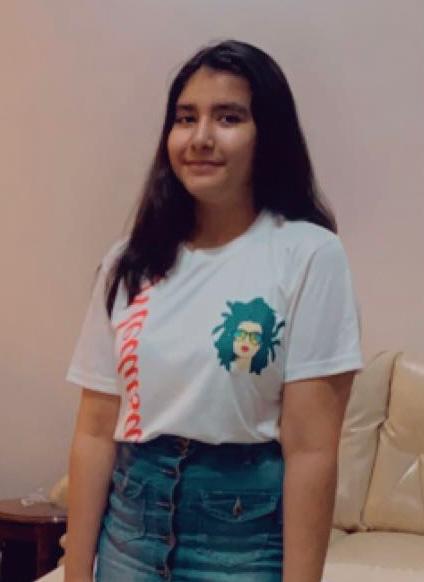 Even though India is a democracy, the electoral means have never been just. In a system filled with criminals and corruption, elections held every five years limit the power of the citizens and not the government.
Even though India is a democracy, the electoral means have never been just. In a system filled with criminals and corruption, elections held every five years limit the power of the citizens and not the government.
The nation does not have freedom from illiteracy and oppression even after decades of struggle.
There is still discrimination based on caste, religion, and gender.
In a society brought up by patriarchy and misogyny, India is a country where only 21% of women have jobs, while the rest exist to marry, cook, and bear children.
In a country where a lower caste member can not enter religious places or even let his shadow fall on a high caste member, the 74 years of development seem wasted.
A dream for India is not about having a massive economy or a powerful military. It is about establishing a proper democracy and granting fundamental rights to every citizen of India, irrespective of their status, caste, and colour.
The India of my dreams is free from corruption, communalism, casteism, and all sorts of exploitation.
A country with no deprivation of basic needs like food, clothing, housing, education, and health, where the government focuses much on agriculture, irrigation, and creating infrastructure like roads and railways, free of child abuse and labour, where people should be aware of sanitation, pollution control, wastage of water, electricity and other amenities.
The fruits of freedom have not been distributed equally but rather have been disproportionately available to the elite and the masses who made an equal contribution to achieving freedom are still a neglected lot.
Living the dream of an independent India seems far-fetched at the moment.
However, the hope for this nation is to become just, equal and accepted.
A country where a woman is not assaulted every 16 minutes, where all castes can eat from the same plate and all genders and preferences are accepted is a free country.
The way ahead, hopefully, is full of endeavours where our country becomes fully democratic and fair.
Khewa Malhotra, Class XI, Carmel Convent School, Chandigarh
Still slaves to shackled mindsets
India, the largest democracy, the second most populous country in the world, the third largest start-up ecosystem, the fourth largest railway network, the fifth largest solar and wind power producer, the sixth largest economy, and the seventh largest country in terms of area; is stepping into the 75th year of its independence on August 15.
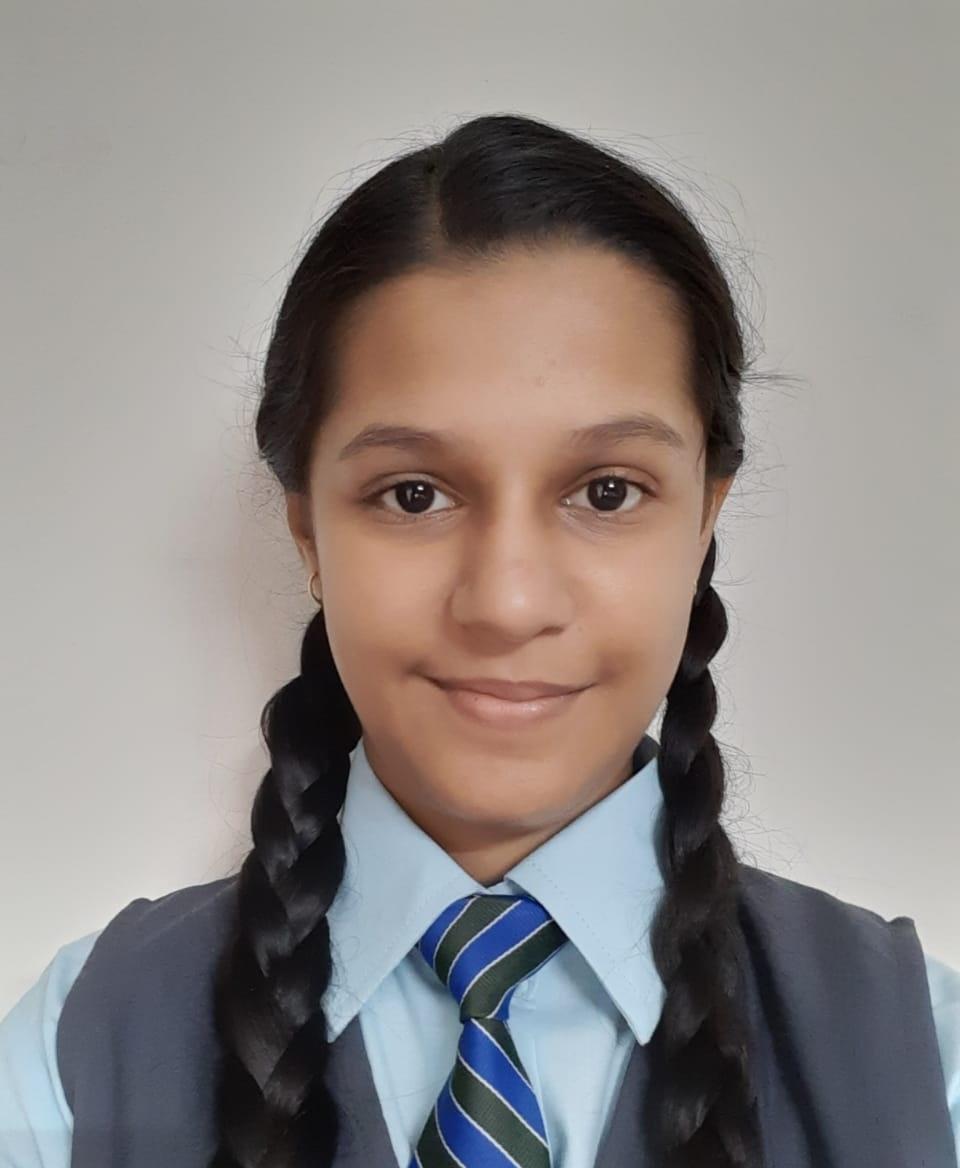 India became an independent country from the British Raj, in 1947, after decades of struggle. Leaders from all walks of life united with a single aim to attain Swaraj, and it is because of them that we breathe in “free” air now. Various movements of freedom struggle helped us to escape from the clutches of the inhumane rulers.
India became an independent country from the British Raj, in 1947, after decades of struggle. Leaders from all walks of life united with a single aim to attain Swaraj, and it is because of them that we breathe in “free” air now. Various movements of freedom struggle helped us to escape from the clutches of the inhumane rulers.
Seventy four years since then, being an independent nation, from the perspective of the worthy Constitution, puts us into a quandary, whether we are truly independent. The fact of just being an independent, self-governing body, fails to fulfill the dreams of our leaders who had a vision and a dream of an independent nation, free from untouchability, poverty and corruption.
Launching the Green Revolution, post independence, in 1960s, in order to feed an increasing population, new better varieties of crops were developed with higher yields and improved disease resistance, helping the country tackle the problem of food shortage. But even today, hunger gleams in the eyes of malnourished children of the poor in many parts of the country. Moreover, surprisingly, 80 per cent Indian adolescents suffer from hidden hunger. Even today, birth of a girl is not welcomed in many parts of the so-called independent nation as they are considered a burden on their families. Social evils like female foeticide and female infanticide are still prevalent in society, and the unbalanced sex ratio is an evidence of it. Women, even today, are not safe and are not given equal opportunities and freedom.
India will be truly called independent, when its people would not be subject to labels, when crime rate would be low, and justice prompt; when we transcend the boundaries of our own prejudices and connect to other individuals as equals.
Arshia Mittal, Class XII, St Joseph Sr SeC School, Chandigarh
Freedom is a blessing and a responsibility
Seventy five years back, India gained independence from the British. The definition of independence, however, has changed over the years. What does the word Independence mean to my generation? It is a very tricky question.
As a student studying in Class X Freedom for me is opportunities to learn freely what I want to learn. It is waking up every morning knowing that choices and decision can be made only by us and nobody else.
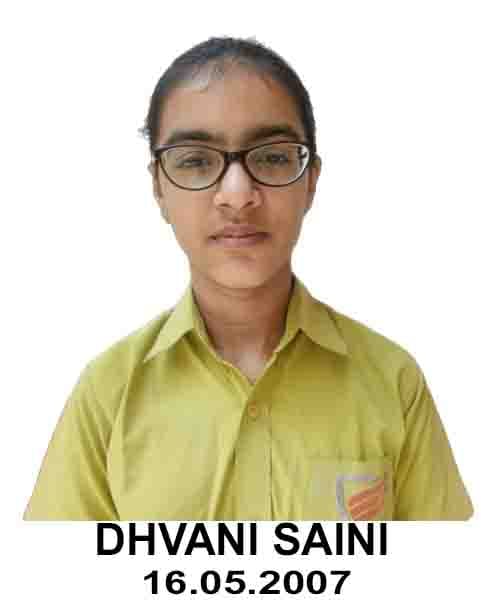 Our country has always set wonderful examples of being democratic. But then a question arises what does living in free India means?
Our country has always set wonderful examples of being democratic. But then a question arises what does living in free India means?
Living in free India for us is the power to speak, think and choose to live our life peacefully, a life without being discriminated against or attacked on the basis of religion and caste.
Freedom is choice: Unlike our parents’ generation, we’re no longer limited by the career confines of “doctors, lawyers, and engineers”. Instead, I am free to choose what I aspire to be.
I also believe that we also experience the freedom of choice in how we live our lives rather than living according to societal norms of having a family, home or choosing my own path.
Freedom is synonymous with opportunity and to translate our dreams into reality. My mother always states that, “Freedom isn’t something we wait for somebody to give us; we earn it and then defend it passionately and also to have the ability to do the above without any fear.” This year we have entered into the 75th year of our Independence and it’s time to analyze what India has achieved in the previous years. And for sure, our hearts swell with pride, oozing love and respect for our mother nation.
There are perhaps very few nations in the world with the enormous diversity that India has to offer. I am proud of being born here. But it cannot be overlooked that there are still many areas where our country needs improvement.
There is no alien power ruling us, but it cannot be ignored that India is still struggling for freedom from multitude of social problems. Our country is suffering from wide-spread corruption. The youth should stand united and try to get rid of this malaise. So, living in a free India for me would mean economic, financial and technological strength to give the citizen of India a good life, moral strength and a national character that can be admired by the world. We have done a lot, and we still have to do a lot.
Dhavni Saini, Class X, Gian Jyoti Global School, Mohali
Fight to free country from social evils now
We all are enjoying the independence which was mere a dream 75 years ago. Do we know how we attained this freedom?
This was achieved after a long and difficult struggle of many brave hearted Indians . Only because of their sacrifice, did we achieve independence from the 200 years of colonial rule.
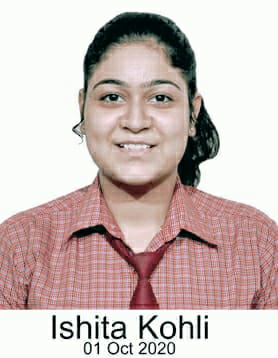 If we talk about today, we all dream of luxurious houses, branded clothes and lavish lifestyle. But a few years ago the lndians only dreamt of independence from the British rule, their slavery, which was a merciless harassment for lndians. The hard struggle led by various freedom fighters bore fruits in the form of independence on August 15 , 1947.
If we talk about today, we all dream of luxurious houses, branded clothes and lavish lifestyle. But a few years ago the lndians only dreamt of independence from the British rule, their slavery, which was a merciless harassment for lndians. The hard struggle led by various freedom fighters bore fruits in the form of independence on August 15 , 1947.
We owe this freedom to our Indian heroes who fought with dedication to make their country an independent one. Because of their efforts we are being called the citizens of 'Independent India'.
Our historical experiences taught us to be the owner of our own life. As, 75 years ago we fought against the colonial rule, now we need to fight against the fake societal standards and transcend the barriers social evils, so that success embraces us as it did our freedom fighters.
Wishing you all a very happy Independence Day! Jai Hind!
Ishita Kohli, Class XII, Ryan International School, Ludhiana
Are we truly free?
Most of us have heard our late Prime Minister, Jawaharlal Nehru’s speech ‘Tryst with destiny’. I, as a young adult, have listened to it a number of times and one particular part of this speech has never failed to inspire me: “At the stroke of the midnight hour, when the world sleeps, India will awaken to life and freedom. A moment comes, which comes but rarely in history, when we step out from the old to new, when an age ends, and when the soul of a nation, long suppressed, finds utterance.”
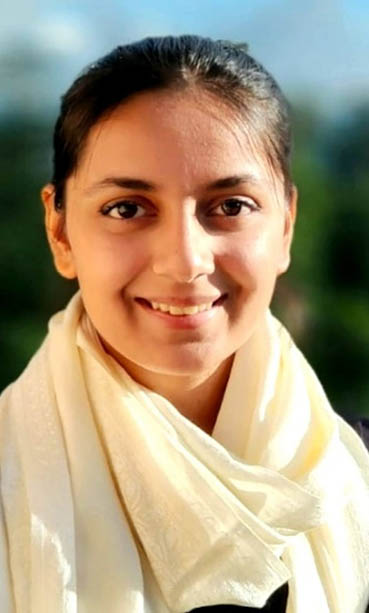 Today, 74 years later I still wonder if how we live today is what our forefathers had dreamt of. Indeed, our generation was born into a position of affluence. We live in a country where we can acquire an education, have our own voice, go wherever we want, and live our lives the way we want. All of these rights give us the ability to be free, which most of our predecessors never had. If we consider it from the perspective of our ancestors, it is a dream come true.
Today, 74 years later I still wonder if how we live today is what our forefathers had dreamt of. Indeed, our generation was born into a position of affluence. We live in a country where we can acquire an education, have our own voice, go wherever we want, and live our lives the way we want. All of these rights give us the ability to be free, which most of our predecessors never had. If we consider it from the perspective of our ancestors, it is a dream come true.
It’s only another dream, though. Dreams, by their very nature, are destined to collide with reality at some point. We were given the label of being a free country in 1947, but let us not forget the issues of racial discrimination, poverty, unemployment, and public health crisis that accompanied it, from which we have never fully recovered.
For my grandmother, freedom means being financially self-sufficient at the age of 80, for my mother, it means living the life she wants, and for me, it means being able to be who I am without fear of social judgement. However, for a large segment of the population, freedom remains a fantasy still.
Although literacy rates have improved, the mindset remains problematic. Even today a girl in India is educated not because she may become self-sufficient, but so that she can marry into a good household. A boy is made ‘rough’ not because he must confront the world, but because he must be able to exert the patriachal supremacy. A woman does not work because she does not know how to, but because she is not 'supposed' to. A man cannot stay at home, not because he dislikes it, but because he is not a true ‘man’ if he does so. All these ideas are the main culprits in keeping us bound to a life that isn’t truly ours.
Our forefathers did not just want Britishers to leave India, but also for Indians to reclaim their identity and contribute to the nation’s growth.
Today, freedom entails more than merely the enforcement of laws and the protection of fundamental rights. It’s being able to be yourself without feeling oppressed by society, with the courage to face your fears. And I’m hoping that this desire will become a reality in the coming years.
We’ve come a long way, but this isn’t the end; it’s only the beginning of another era; an era of breaking free.
Yashasvi Gupta, Class XII, Loreto Convent Tara Hall, Shimla
Fruits of independence should be shared equally
Independence means the ability to live as per one’s own wish, though keeping in view certain well established principles.
Every organism in this universe wants, needs and loves independence. For example, trees, plants and even creepers love freedom to grow as per their needs. Birds will love to live freely in nature and will never love to be caged by human, even though their masters may provide them all comforts and necessities within the cage.
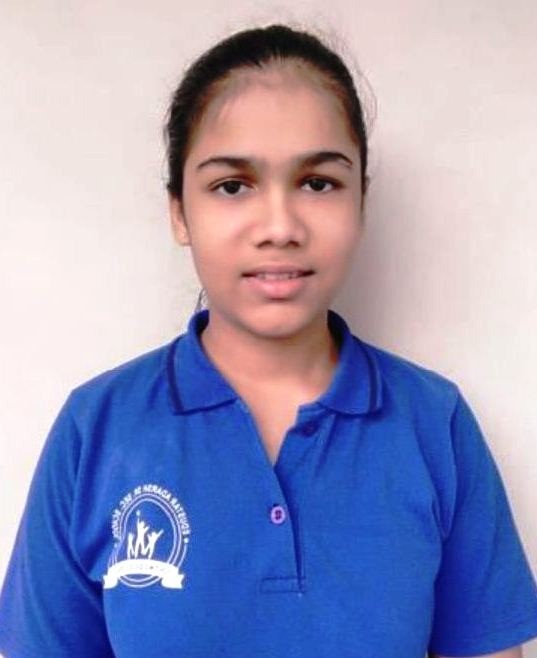 India remained under British rule for around two centuries. Indians were humiliated on the basis of their colour. The British used the policy of ‘Divide and Rule’ to create conflict inside the country. When Indians realised the pain of slavery and its implications, they were shaken. They started grouping together and fighting for independence.
India remained under British rule for around two centuries. Indians were humiliated on the basis of their colour. The British used the policy of ‘Divide and Rule’ to create conflict inside the country. When Indians realised the pain of slavery and its implications, they were shaken. They started grouping together and fighting for independence.
During the struggle for freedom, many freedom fighters came to the fore. After the sacrifice of hundreds and thousands of these brave men, India gained independence on August 15, 1947, but unfortunately, our country was divided into Pakistan & India.
But have things really changed for a common man over the past 74 years? Even in the post-independent era it has not been easy for ordinary people. Money and other resources are getting concentrated in the hands of a few causing huge disparities among the haves and the have nots. There are families which even after day long hard work aren’t able to feed their children properly.
During COVID times when people were being advised to wash hands frequently with soap and maintain social distancing, there were scores of Indian families that didn’t have excess to clean drinking water and were forced to accommodate the whole family in small huts or 1- room houses.
There are families whose wards don’t get tired of flaunting luxury vehicles as also the families which could not even transport their sick women and children to hospitals or the dead to the cremation sites.
I think living the dream of an Independent India means access to housing, balanced diet, quality education, potable water, economical fuel, electricity, health facilities, transportation, suitable employment for all, so that, all of us can live respectfully.
Many of the basic rights of the Indian citizens are in a suspended animation due to mismanagement by those who are at the helm of the affairs.
Fulfilling these basic rights must be the dream of the independent India.
Besides this, inculcating scientific temperament among all Indians, preservation of nature and natural resources, providing free and compulsory education to all at least up to 14 years of age, eliminating social evils like begging, dowry, religious fundamentalism, environmental pollution etc. must be the goal of the independent India.
During these tough times, vaccinating every citizen against COVID and other communicable diseases, controlling diseases like cholera, AIDS etc. and also making India self reliant and safe against foreign enemies, too, are the things that will mean the fullfilment of the dream of an independent India
In the end, it can be said that independence in itself does not have any meaning for anybody if the fruits of independence aren’t shared equally among all the citizens.
Mehak Ritinder, Class IX, Hubble Adarsh Sr Sec School, Kalewal
Join Whatsapp Channel of The Tribune for latest updates.



























